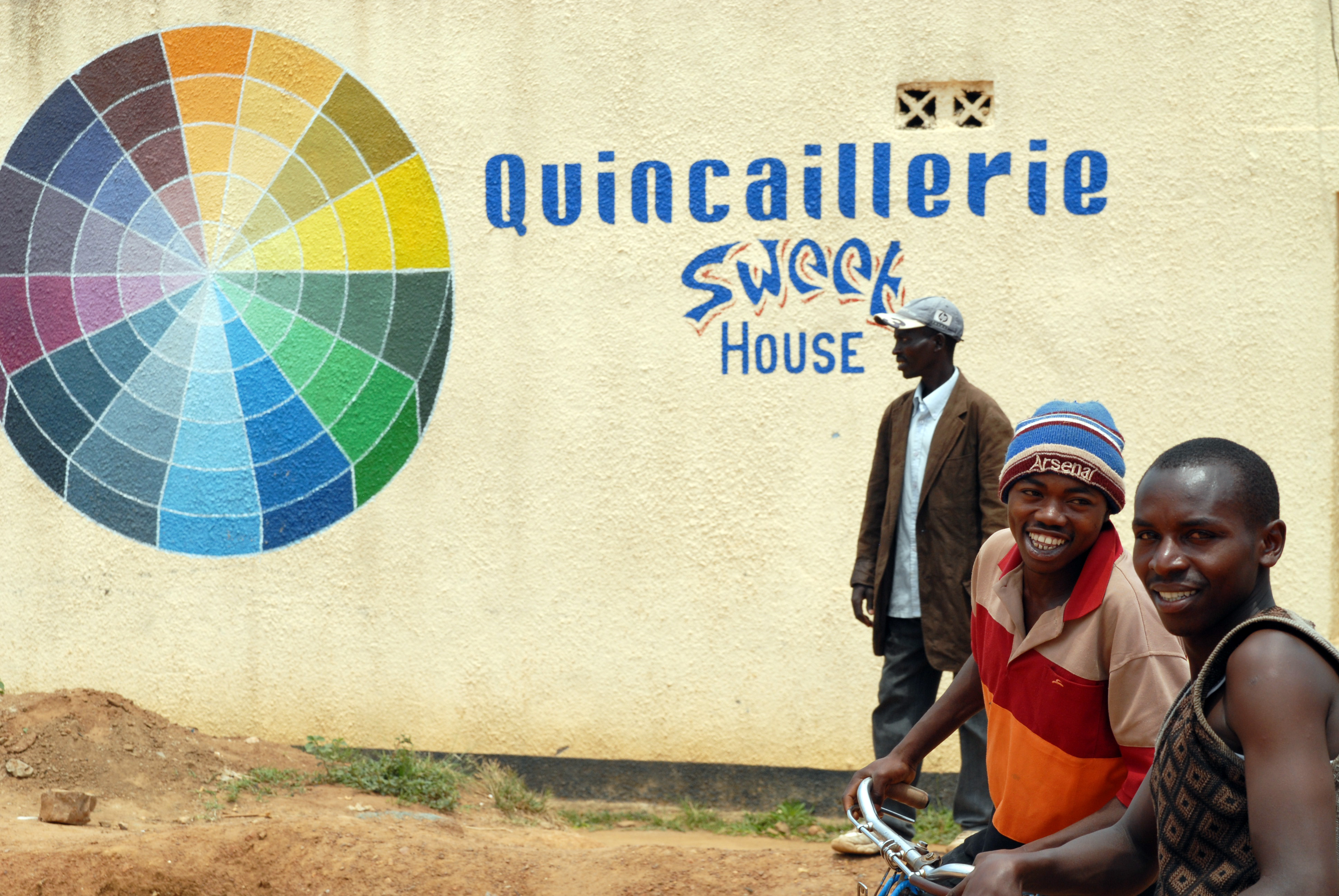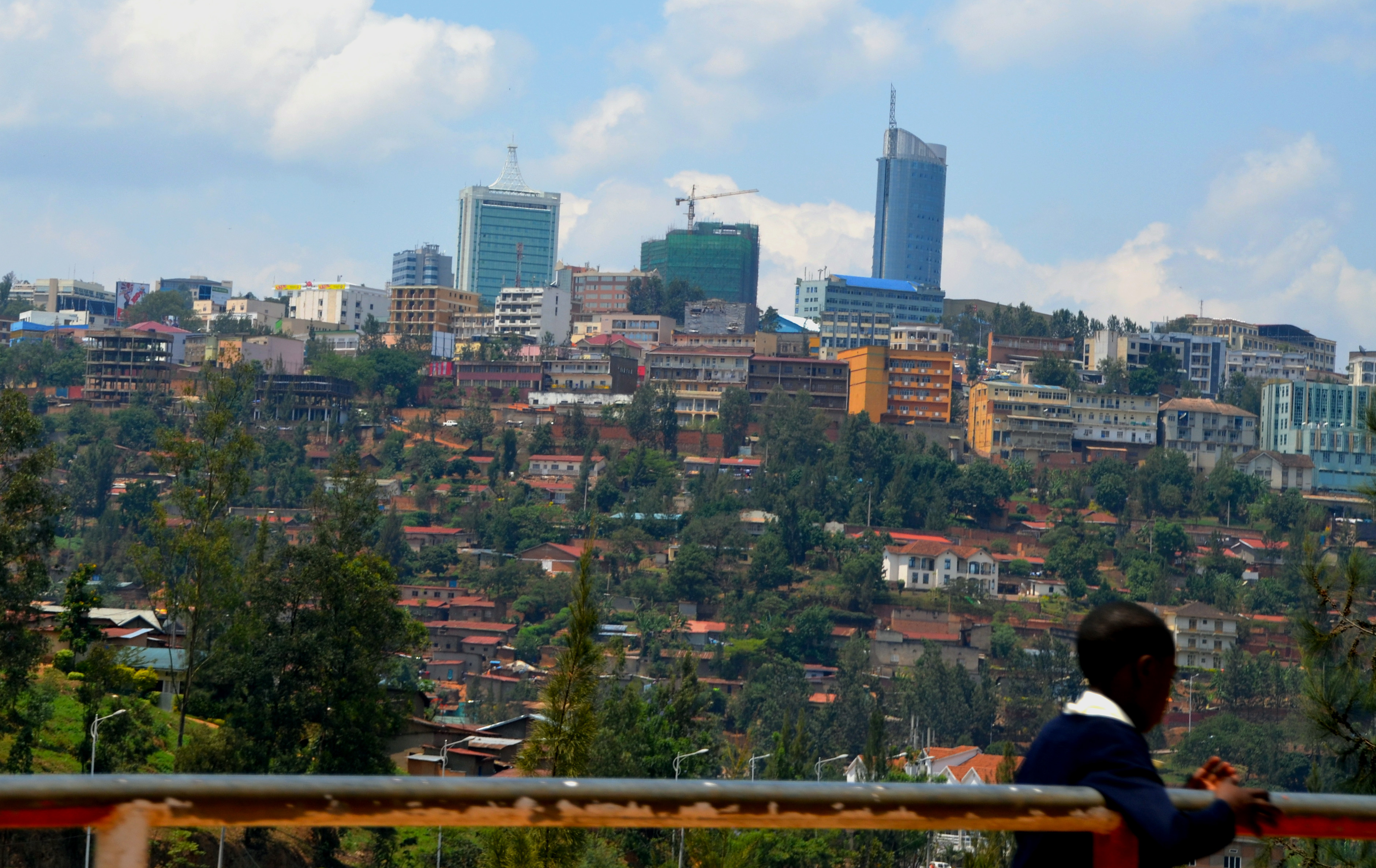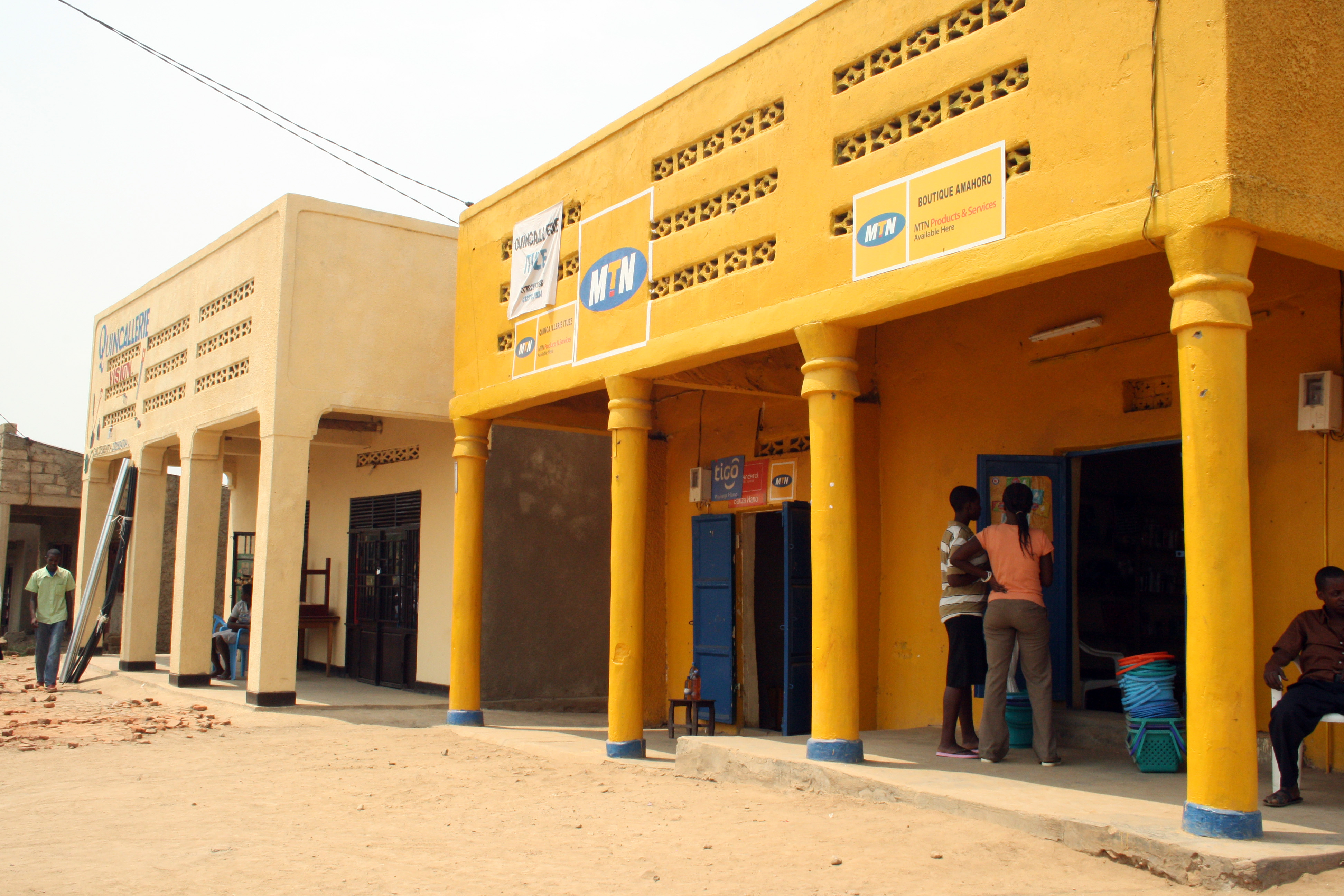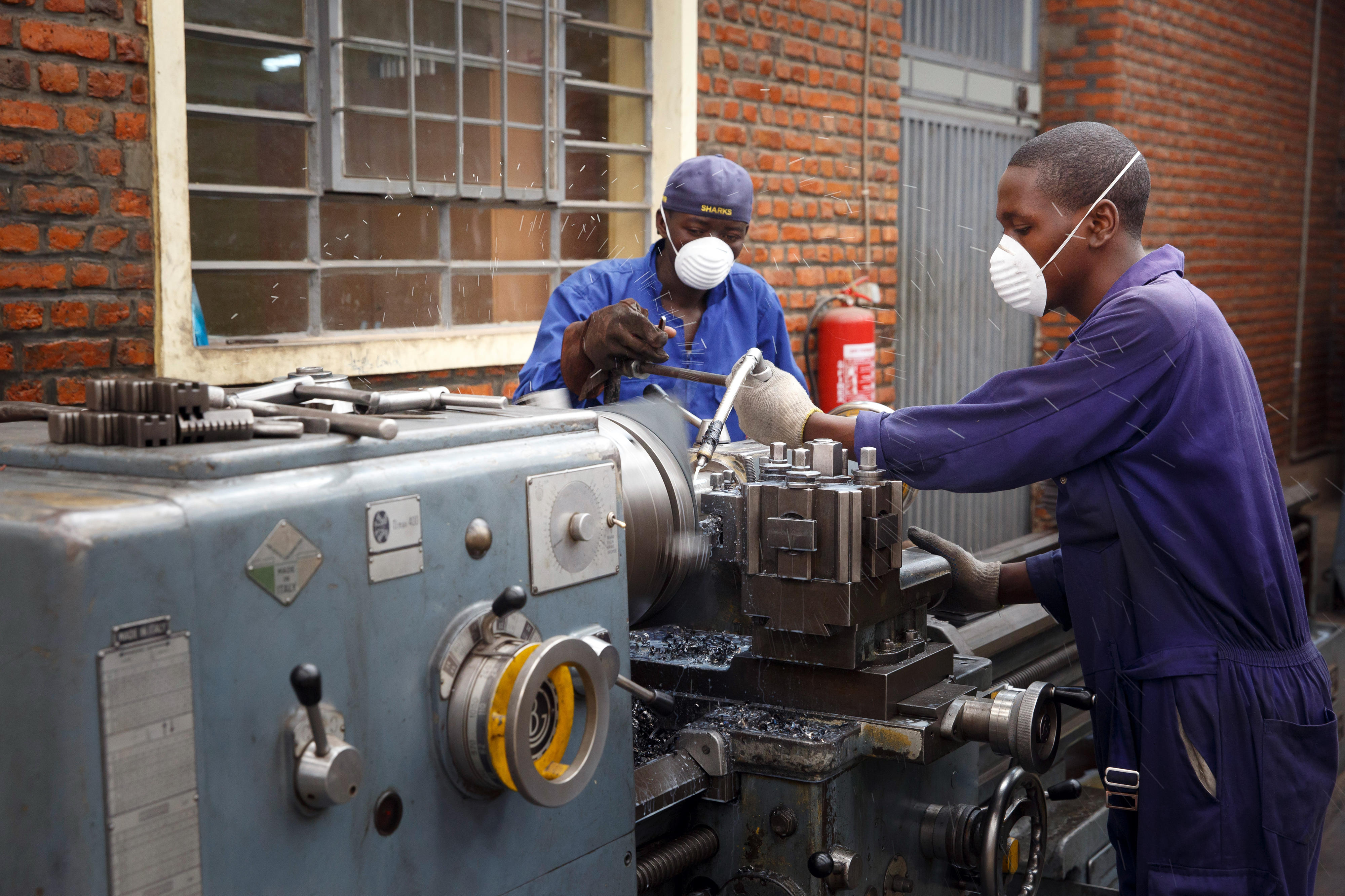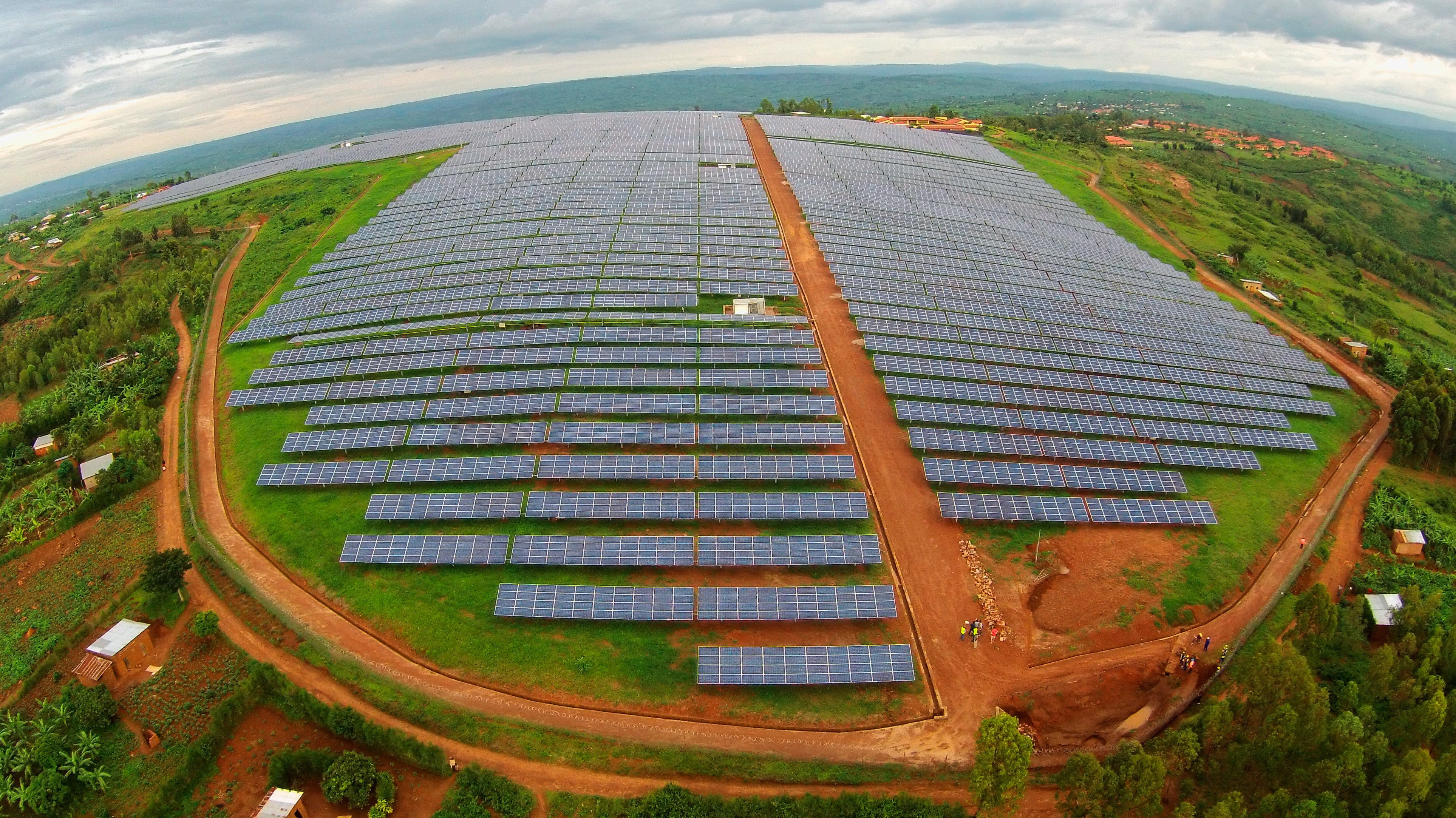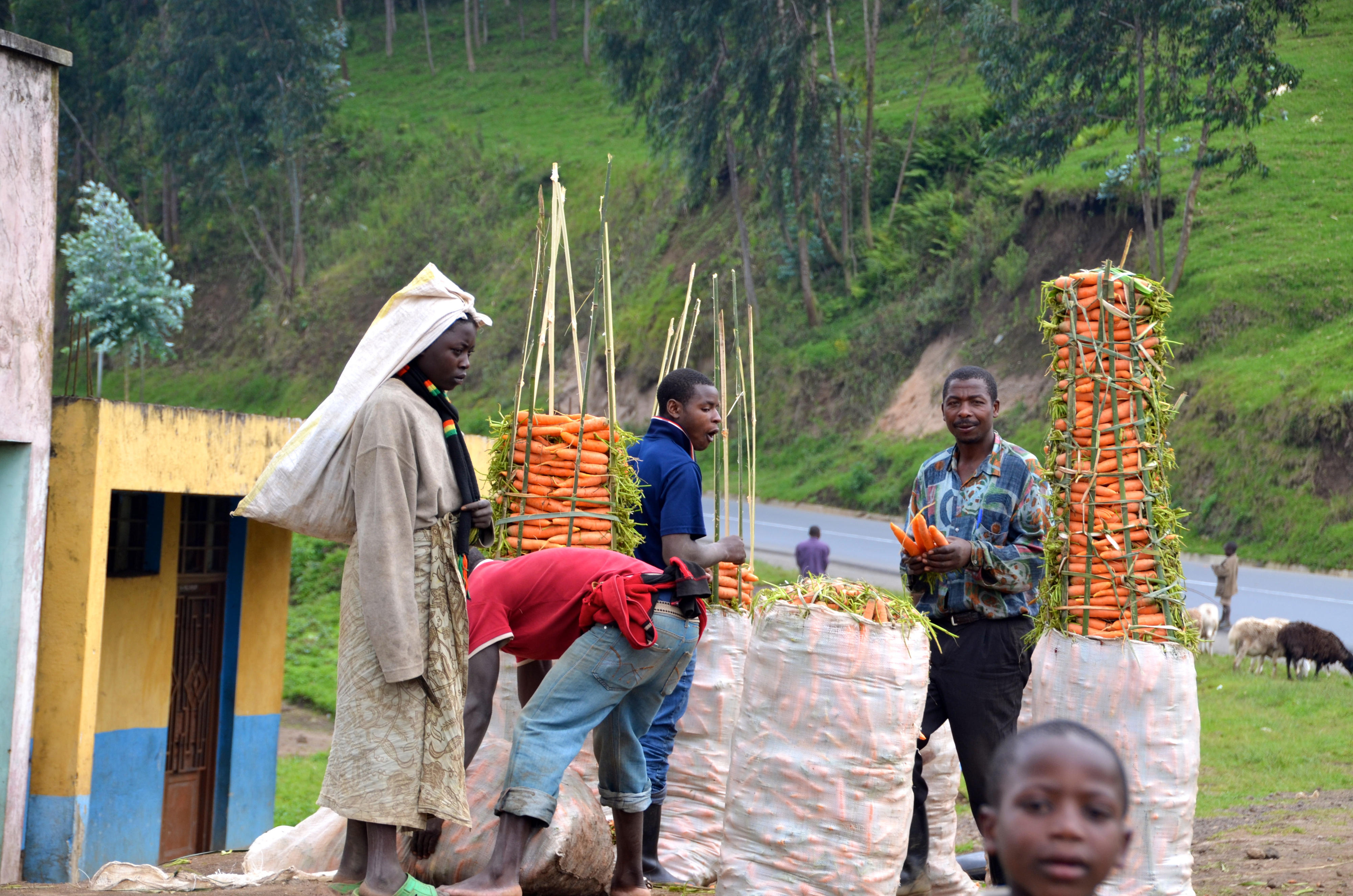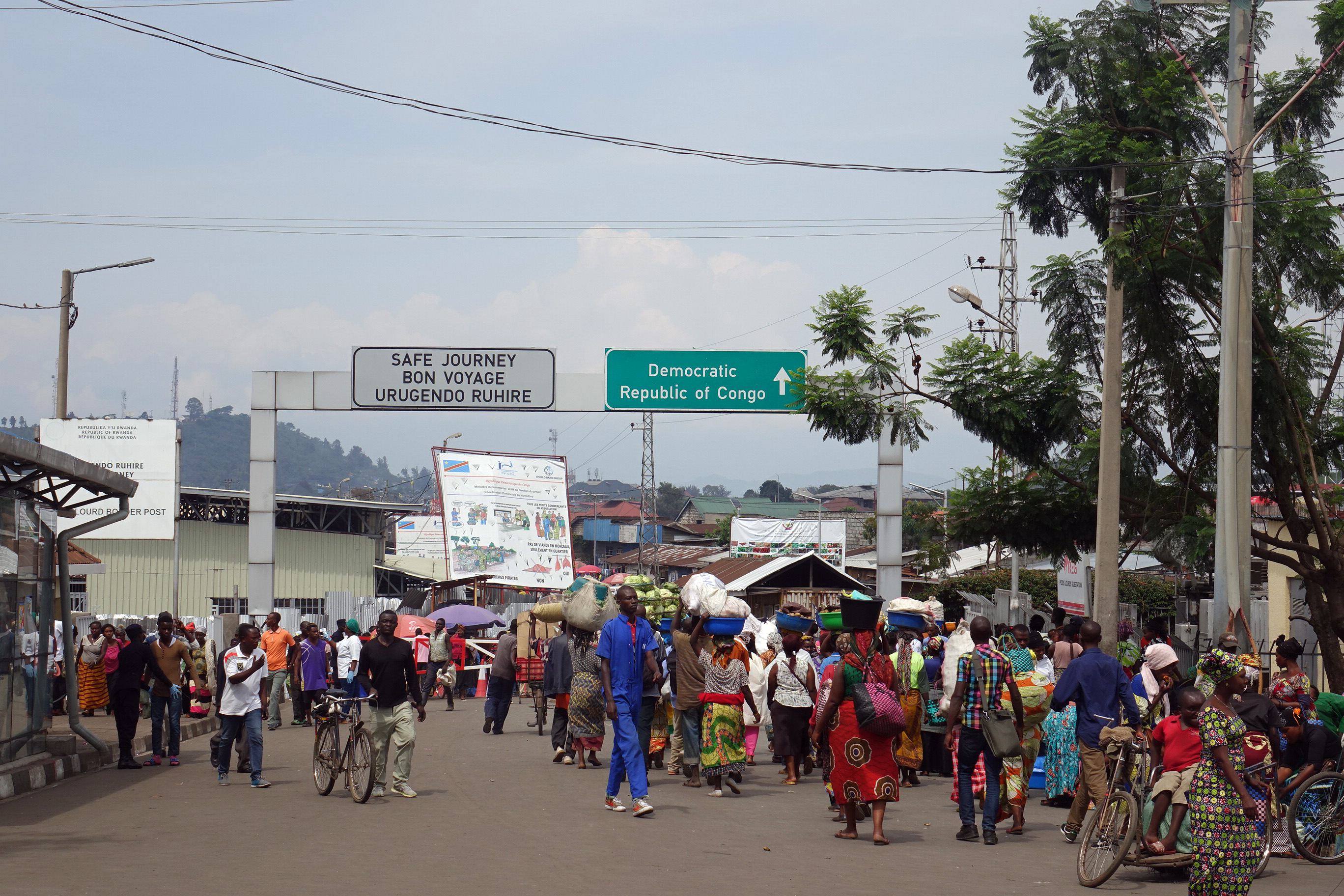Teenagers in Rwanda
Copyright© MO*, via flickr, CC BY-NC 2.0
Rwanda
The government is very much focused on achieving its ambitious goals for reforming the country. However, authoritarian government structures have become even more entrenched under President Paul Kagame. His government is increasingly being criticised for having established an autocratic regime, for persecuting political opponents and for restricting freedom of opinion and freedom of the press.
Ethnic conflict between Hutus and Tutsis has been a recurrent theme in Rwanda’s history. In 1994, it escalated, resulting in a genocide against the Tutsi minority that is thought to have claimed around one million lives in just 100 days. The genocide, the physical and mental trauma suffered by large parts of the population and the mass displacement and subsequent return of some 3.5 million refugees have had, and continue to have, a lasting impact on Rwanda and have thrown the country back considerably in its development.
Dealing with the aftermath of the genocide remains one of the major challenges for the country. Other challenges include the severe economic and social consequences of the COVID-19 pandemic, the poverty in rural areas, high population density and land scarcity, the impact of climate change and a huge demand for jobs compounded by a shortage of well-trained people. The current United Nations Human Development Index (HDI) ranks the east African country only 159th out of 193 countries.
German development cooperation with Rwanda
Important goals of German-Rwandan cooperation are poverty reduction, promoting social cohesion and supporting the country’s sustainable economic development, which also includes support for the development of the pharmaceutics and biotechnology sector. This cooperation also contributes towards protecting global public goods like the climate, and peace and security, and towards strengthening human rights and gender equality, and supporting the future-oriented increase in the use of digital technologies.
The Federal Ministry for Economic Cooperation and Development (BMZ) incorporates key goals of Rwanda’s own development strategies and of the G20 Compact with Africa (External link) initiative into its development cooperation with Rwanda.
Under the G20 initiative, Germany has joined with other donors to support Rwanda in improving the environment for private investors. Under this framework, a German Business Desk has, for instance, been set up in Rwanda’s capital Kigali to promote investments in areas relevant to development.
Germany’s bilateral development cooperation with Rwanda focuses on the following core areas:
- Peaceful and inclusive societies | Area of intervention: good governance
- Sustainable economic development, training and employment | Areas of intervention: technical and vocational education and training, private sector and financial sector development
- Climate and energy, just transition | Areas of intervention: adaptation to climate change and climate protection, sustainable urban development
In addition, Germany is supporting the work of civil society organisations in the area of human rights in order to strengthen the rights of especially disadvantaged groups vis-à-vis public institutions (for example young people’s and women’s rights, and health rights).
At the government negotiations in June 2024, Germany committed up to 111 million euros in new funding to Rwanda for the period from 2024 to 2026, with up to 79 million euros being committed for Financial Cooperation and up to 32 million euros for Technical Cooperation.
Furthermore, under the framework of the Special Initiative “Decent Work for a Just Transition” Germany is providing up to 6.6 million euros.
Because of Rwanda’s active involvement in the offensive by the M23 rebels in Eastern Congo, the Development Ministry cancelled the government consultations with Rwanda that were scheduled to take place in mid-February 2025. Germany has on multiple occasions condemned the actions of the M23 and of the Rwandan Defence Forces (RDF), including the capture of the provincial capitals of Goma (North Kivu) and Bukavu (South Kivu). In March 2025, in response to the continuing offensive, Germany suspended new commitments for development cooperation with Rwanda.
Initiative area “Digital technology and data”
The BMZ is supporting the introduction of digital technology in Rwanda with a view to improving the overall economic and political framework for the digital transformation and creating secure internet access for all population groups.
This support includes the opening in 2019 in Kigali of the BMZ’s biggest Centre for Digital Transformation. The purpose of the centre is to develop digital solutions for sustainable development in the country and to serve as a bridge between German and European companies and research institutions, and companies in Rwanda.
SDG trends for Rwanda
- On track or maintaining SDG achievement
- Moderately improving
- Stagnating
- Decreasing
- Trend information unavailable
